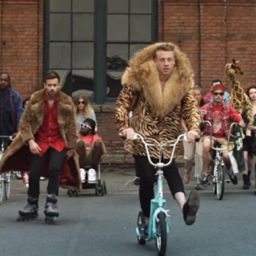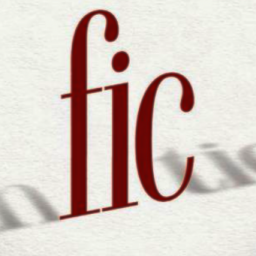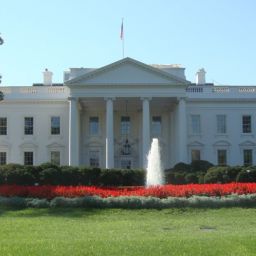On Gamine Expedition, Sara Grimes writes about the Harry Potter lawsuit differently than I’ve seen before (or the economic production /fan labor issues that I’ve written about) by focusing on how traditional intellectual property analysis ignores the impact of copyright on children:
What troubles me about the Harry Potter lawsuit is that … the object under dispute is nonetheless children’s culture. I doubt anyone, especially J.K. Rowling, would ever go after a child for appropriating her text…though I’m not so sure that this would necessarily extend to the unlikely scenario of a child attempting to publish these appropriations for profit.
But the fact remains that these discussions, lawsuits, and (potential) copyright expansions are taking place within the realm of kids’ culture, which will surely have an impact on how this culture develops, what space is allowed for UGC in the future, and how kids’ perceive what’s allowed and not allowed when it comes to branded characters and stories. I doubt there are many Harry Potter fans – of any age – who haven’t heard by now that if you write fan fiction about Harry Potter, you could get sued, or at least make J.K. Rowling very upset with you.
Pushing copyright norms onto kids has now become our norm — see the Word Intellectual Property Organization’s kids copyright guide (PDF), Copyright Kids, the now-defunct Canadian “Captain Copyright”, and MPAA-sponsored Copyright Badges for scouts.
I have heard multiple lawyers publicly state that they knew they were sending cease-and-desist letters to eight-year olds — and they believed this was needed to serve their clients. These actions are taken despite the fact that most of the fanworks created by kids are done with extreme reverence to the source material. Yet this reverence plays no role in the determination of “fair use.” Perhaps adults should “know better,” but the play of children should not be subsumed within our concern about copyright.
The most popular song for birthdays, “Happy Birthday” and hence part of the life experience for the vast majority of English-speaking children, is either copyrighted or no one has been capable of taking on its corporate overlord to prove its public domain status. Henry Jenkins has written about the previous copyright debates involving Harry Potter fan culture.
Sara continues:
I … think that when we’re dealing with kids, this issue of appropriation and fan culture becomes even more complex. … Examples of how kids’ themselves incorporate media characters into their everyday lives include everything from role-playing Spongebob and Patrick, to drawing pictures of Pikachu.
And … creative appropriation [is studied] as an important way that kids make sense of the media presence in their lives, as well as engage with the larger culture, challenge dominant ideologies, co-produce a shared culture with other children, etc. …
When children create and play, they traditionally have not needed to think about the starting point of their creativity — whether it is jump rope rhymes (remember Miss Mary Mack?) or where the backstory of the Knights of the whatever came from. As I said, “Reworking or redoing the culturally significant works of others has been an important part of children’s play for forever; after all, what else are nursery rhymes? Children still sing a song about the Black Plague!”
But now that so much of children’s lives are branded, intellectual property plays a large role in shaping the limits of child’s play. While there are many works that technically aren’t copyrighted, how many children would know about non-Disney versions of Snow White, Cinderella, Peter Pan, and the Little Mermaid (spoiler: in the original, she becomes a helpful ghost) ? Or more disturbingly, about cultural significant figures (not just “Disney princesses”!) historical figure Pocahontas and possibly historical person Mulan? Has anyone been to a U.S. zoo where entire species of animal have not been referred to by children and their parents as simba, timon, pumbaa?
Sara concludes:
I also think that legal systems (such as copyright) can be and are increasingly used to limit, contain, rationalize and commercialize kids’ culture. And this happens in a variety of ways – through the elimination of opportunities to generate content, or by placing restrictions on what and how that content is generated (limiting freedom of expression and undermining children’s agency); through corporate claims of IP ownership over child-generated content and submissions; and by teaching kids from a very young age a corporate reinterpretation of copyright law…ignoring fair use and obscuring the principles upon which copyright was based in the first place.
As these practices become the industry standard (and in fact begin to be programmed right into the design of online games and environments), the space for children to appropriate, manipulate, subvert, make sense of and have some sense of ownership over their shared culture becomes increasingly scarce, increasingly threatened.
With an increased focus by many media companies on online games for children, the issues Sarah raises become even more important. Should ten-year olds be expected to read and understand terms of service, and not break down in tears when their creation is changed or deleted?
it should never be a ‘no duh’ moment when you (the user) are made to feel empowerment because you built something, then were lead to believe you owned it (in whatever sense – people need to be clear more often), and only discover later on that because of the playground you were in… you have no real rights (you only own it when we say that you own it, you’re in our world now grandma. Step out of line and we crush-a you)…
My favorite of all is Disney’s TOS… they do say … that anything you ever did upon viewing/logging in/participating/breathing at their site/world/existence is their’s lock, stock, and barrel – from your name, to the way in which you may misspell the (teh), etc, etc, etc.
The unclear limits and power dynamics of intellectual property can impact anyone. But should our intellectual property protection serve as a often-highly effective limit to child’s play?





Tarleton Gillespie has a great paper about copyright education and children, which I blogged a bit about here: http://tushnet.blogspot.com/2008/05/sts-and-ip-copyright-education-and.html